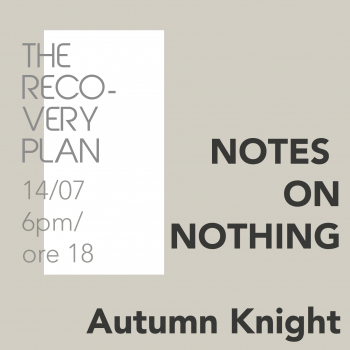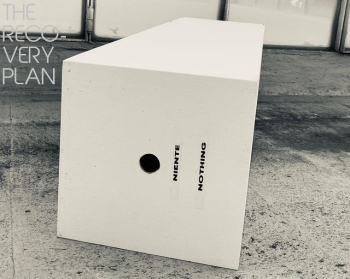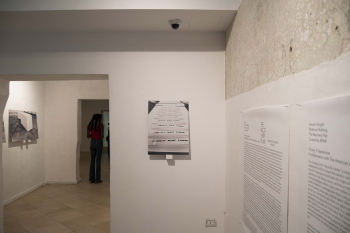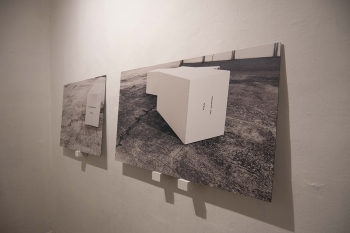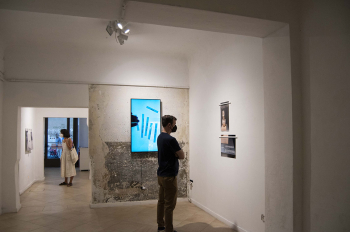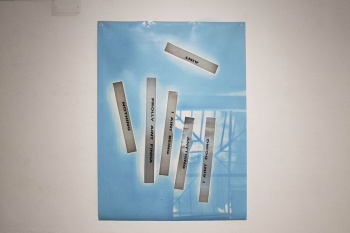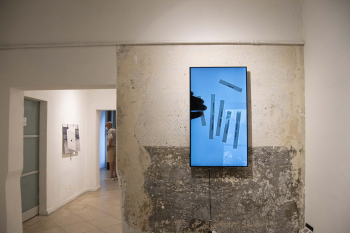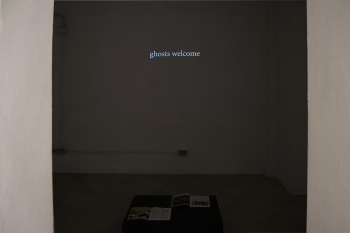Autumn Knight
Notes on Nothing
14.07 - 04.09 2022
The concept of the “dolce far niente” is romantically designated as an Italian way of life whose carefree, easy flowing, slow pace is understood as full of virtues that stand in contrast to the notions of laziness that these elements may represent for a capitalistic society which attempts to hold tight the reigns on global cultural develop- ment and its aspirations. From the perspective, extensively engrained into the literary canon, and the privilege of a labor driven society, who typically comes to the Italian territory on vacation, this cultural landscape, which is also one riddled with a lack of job securi- ty and a fragile financial infrastructure, can be deemed backwards or behind, a vantage point that is only possible if we believe in the myth of progress advanced by capitalism. These perspectives however, render geo-cultural space ideal for the leisure of tourism as advanced by placing Italy as a crucial destination of the grand tour. Simultaneously, there is a great irony in discerning heightened care for life as simply a choice in diverging from production driven approaches to society. In a radical sense, the confusion of slower rhythms and deeper stated agency for nothingness attempts to evacuate all of the labor that extra time, and extra care, is productive of, shifting away from the exhaustion of unsustainable rhythms as a meditation on what it may actually mean to be productive in society. Autumn Knight’s work requires that the audience be present and that they apply themselves in a way that does not allow for passivity, problematizing in turn what is typically understood as intellectual engagement. If performance is often understood as something to be witnessed, her work asks that you bear witness to it from an active position, full of choices that are yours to be made, along with those that have been predetermined for you.
Author bell hooks talked, in a 1998 Florentine interview, about the split that she experienced with white feminism arising from the idea that they had premised their position in the thought that women had never worked, a consideration completely unaligned with what she knew of Black women in US history. Moten, in Blackness and Nothingness states “I want to consider exhaustion as a mode or form or way of life, which is to say sociality...” These layers and perspectives, which unsettle the notions of futility and production that art has consistently been disruptive of, asks that we address the unruly constellation of a sincere value for our time on this earth, the sweetness of nothing, the stereotype of laziness and the realities of exhaustion. These realities in relation to the historical fixing of the Black body relative to labor, both in the US and in the Italian context, should be cause for reflection, just as an absenting or evacuation of Black presence in Italy begs for reconsideration in relation to notions of nothingness and even voicelessness. The work of Autumn Knight grapples with the qualms of Black performativity, the expectations of entertainment and perhaps, most centrally, the presumption of forms of labor that tend not to acknowledge intellectual labor, or the work of Black thought, as de-tethered from, yet intrinsically a part of, the laboring body. Notes on Nothing invites the viewer to engage in forms of labor that produce content and rest, at the same time. It extends a fundamental perception that calls for defiance towards production oriented forms of labor, while acknowledging all that we refuse to apply this term to. This research-oriented project is an invitation to do nothing in a context where inactivity can be a form of resistance, but where the predisposed impulse to engage may actually be stifling. Composed of a grouping of sources, texts and performance fragments, this exhibition is the sixth cycle of Di Palo in Frasca* and is realized in collaboration with The American Academy in Rome where Knight has been in residence since February 2022 as a Nancy B. Negley Rome Prize fellow.
